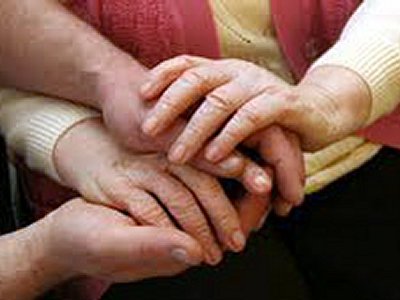
IS THERE REALLY A WAR BETWEEN THE GENERATIONS?
Media hype suggests there is and our culture is full of lazy stereotypes:
War generation: greatest
Baby boomers: privileged
Millennials: narcissistic
Gen Z: snowflakes
But this obscures a more nuanced and complicated picture, one painted compellingly by Bobby Duffy in ‘Generations: Does when you’re born shape who you are?’ (Atlantic books 2021).
The first staging post is the differentiation between three effects: period; lifestyle; cohort.
A period effect is when beliefs and behaviours change for each generation at broadly the same time. An event or series of events makes an impression on everyone, however young or old they are.
A lifestyle effect is shown when all people change as they age. Young people may not exhibit the beliefs and behaviours of older people, but they do when they get there.
A cohort effect is specific to a generation and not necessarily replicated by others. This usually occurs because each generation grows up in different conditions. Parents of my generation grew up in the shadow of possible nuclear war; their children are growing up with the fear of climate catastrophe.
The sociologist, Kurt Mannheim has suggested each generation has a social identity forged by common experiences, sometimes traumatic. We usually form our values as we mature from children to adults, and so major events around this time often have a major impact on us as we grow older. This has special relevance for today’s young people, whose value system will be shaped by the pandemic. What we don’t really know yet is: how, exactly?
Duffy’s argument is that the war metaphor is an unhelpful description of what is happening between the generations. It is not the presence of conflict so much as the absence of connection. The spaces between the generations are opening up. This is partly because they inhabit different digital platforms. The moment older generations start to colonise one, younger people migrate to another. But it is also because of inequalities between the generations. Older people have grown much wealthier than younger people; they will also pass on this wealth to their families, ensuring the inequalities set like cement. But Covid highlighted a different inequality: the risk of death from the virus doubled with every eight years of age.
It is unfair to demonise baby boomers; many of them selfless and civic minded. It is also unwise to laud younger generations for their idealism, because this may change in time. It is odd older generations tend to think the idealism of young people will endure, given it didn’t in their own case. But at least it shows we never lose hope.
Faith is something passed from one generation to another. It lay behind a former Archbishop of Canterbury’s observation that the Christian faith is only ever one generation from extinction. Some saw this as a counsel of despair when it was simply a statement of fact. And for those who believe, the greatest gift we can pass on is trust in the steadfast love and faithfulness of the Lord. Churches are also one of the few places in the western world where all the generations freely mix in one place and are encouraged to see one another in familial terms. If there is a societal disconnect, there should not be an ecclesial one and if there is, it is nothing to boast about.
The same kind of conflict metaphor can exist in churches: some imagine a zero sum game where investing in younger people means older people will lose out, and vice versa. But most people do not see it that way, and nor should they. The blessings of faith and growth spill out in lots of ways. The risk may be similar to society’s: of a disconnect between the generations in church, where faith and worship are expressed in different places. When this happens, younger people can be deprived of the wisdom older people can bring, and older people of the hopeful energy younger people impart.
One generation was missed out in the stereotyping analysis at the start, by the way: Generation X. Could you put a lazy label to them. The X was supposed to represent a blank, as if nothing is there. Strange we don’t have a grip on them in the same way. But right now, they have levers of power in the Church. Pray for them (not least because I kind of creep into the category…)





